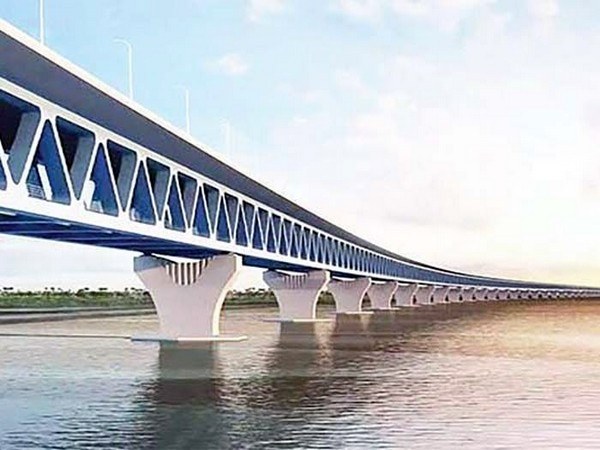It is a proud moment for Bangladesh. The euphoric chant of “Padma nationalism”, that greeted Saturday’s inauguration of the longest bridge across the choppy waters of the river, has suitably overshadowed the contretemps that preceded the grandstanding. The opening of the 6.15 km bridge across the swirling waters is verily a watershed development on the 50th anniversary of the liberation of Bangladesh. The country has reason to preen its feathers over this wonder in structural engineering. Very pertinently did the Prime Minister, Begum Hasina, remark: “The Padma bridge is not a pile of brick and cement. It is a symbol of Bangladesh’s pride, honour and ability.”
The bridge envisages economic development to facilitate trade and commerce and also, of course, to ensure better and faster connectivity. The economic impact will be considerable not the least because a person can travel from one corner of the country to another without using the ferry services, almost historical. Besides aiding travel within the country, the bridge will cut travel time between Dhaka and Kolkata by two hours. It is a measure of the strategic importance of the bridge that its inaugural was celebrated across the country. Hence perhaps the epithet, “Padma nationalism”. There is considerable excitement among hoi-polloi about the bridge.
Advertisement
It is expected to push the country’s GDP up by over 1.23 per cent. Among the impediments that Hasina had to countenance was Begum Khaleda’s BNP government that had shelved the project after coming to power in 2001. “We came back in 2009 and again started planning for the project.” The Prime Minister’s statement at Saturday’s inaugural is suggestive of the determination and effort. Additionally, there were what she called “conspiracies” to derail the project. Her plan to connect the 21 south-western districts with the rest of the country nearly hit the reefs when the World Bank opted out, citing irregularities and corruption over the appointment of consultants.
Construction was resumed in 2015 after she announced in Parliament that the bridge would be constructed with the “own funds of Bangladesh’’. She mentioned that a court in Canada had quashed the corruption allegations made by “vested interest groups. The bridge has been built and the economy of Bangladesh has not collapsed”. Without naming Begum Khaleda, it was a sniper attack against the BNP leader. It is significant too that both the former Prime Minister and the Nobel Laureate economist, Mohammad Yunus, were invited to the inauguration, but neither turned up. Khaleda of course has been under the weather for a while.
The Padma bridge, the country’s longest rail-road connector, will drastically reduce journey times. But it does more – it boosts the morale of a country that has strarted to believe it can find ways out of its endemic poverty. The leader of the Awami League can well and truly be proud of the spectacular achievement… despite the daunting odds.









